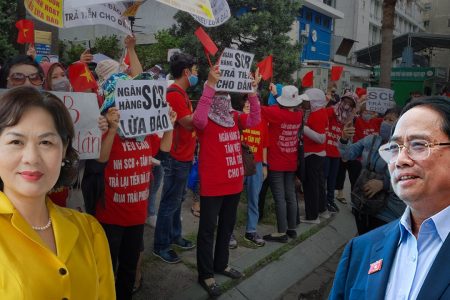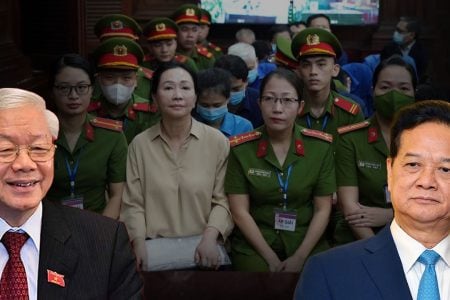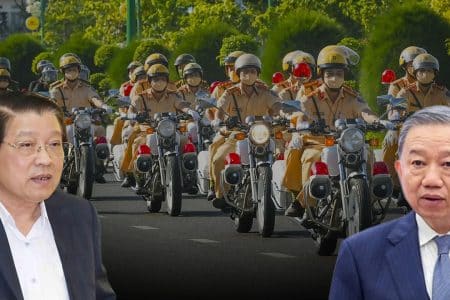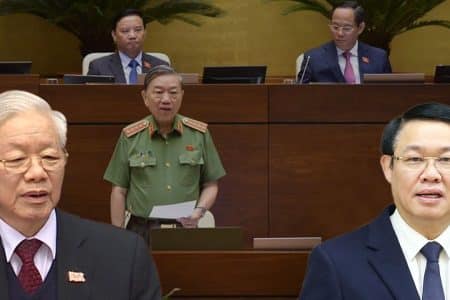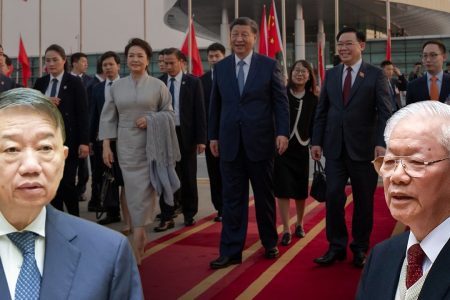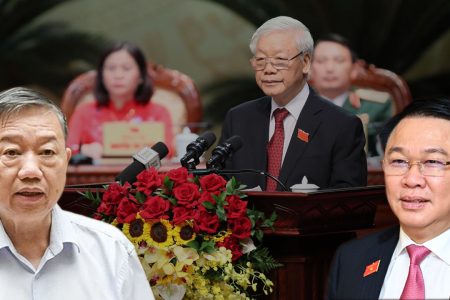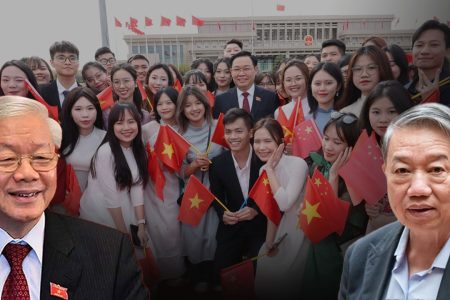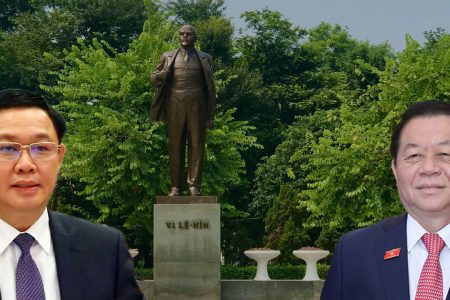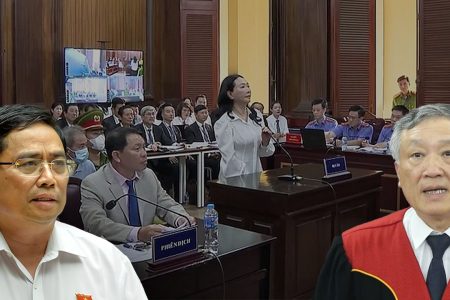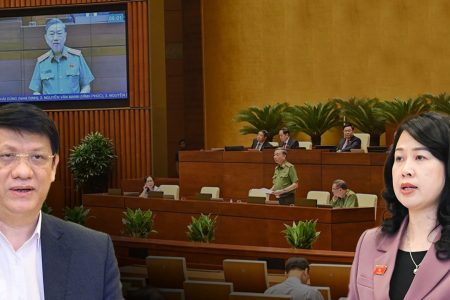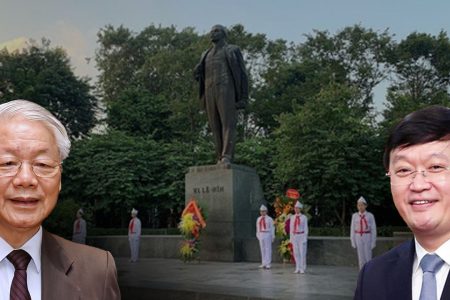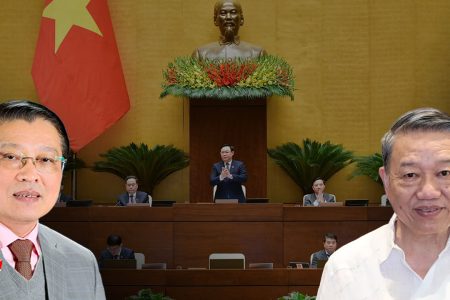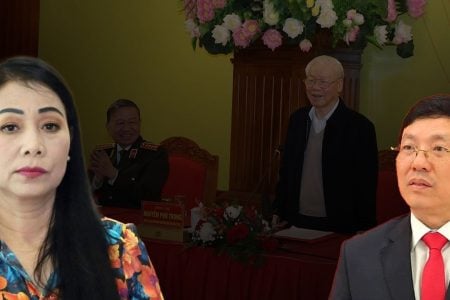
Difficulties must be removed for private enterprises, creating all conditions for the private economy to feel secure in investing, doing business, and innovating in Vietnam. Prime Minister Nguyen Xuan Phuc made the call just mentioned at the Government meeting on February 18, 2021.
According to PM Phuc, the private economy has developed rapidly over the past time, many large corporations have appeared, making a great contribution to the growth of gross domestic product (GDP). However, he said that there are still many obstacles and constraints to private economic development. Therefore, it is necessary to focus on removing barriers in institutions, policies, laws … to help the private economy develop.
For many years now, many leaders of the Party and Government of Vietnam have also often advocated for institutional and policy reforms to help development. However, many experts believe that it is not easy to reform institutions when there are many problems related to the political system.
From Norway, on February 19, Ph.D. of Economics Nguyen Huy Vu commented to RFA:
“In the current Vietnamese institutions, the laws are not fair, the policies are not transparent, so business people must have relationships with regime’s senior officials. And when businesses use that relationship, that relationship becomes a barrier for businesses in general in the economy. Businesses that have relationships with incumbent bosses can do business, businesses that no longer have relationships with powerful bosses may face risks. Businesses, therefore, want to do well, they must overcome the relationship barrier to establish relationships with regime officials. This is the biggest barrier that stops all genuine, creative businesses wanting to compete with their capabilities instead of spending money to buy relationships.”
Wanting to remove this barrier, Dr. Nguyen Huy Vu said that it is not possible to just reform the political system, towards a democratic system by simply speaking. Only when there is an independent judiciary, with citizens and opposition parties overseeing the ruling elite, we can limit the use of power to nurture relations with backyard companies for unfair competition, forming relational barriers that harm the economy.
Economic expert Bui Kien Thanh, a Vietnamese American financier, who has made many contributions to the development of Vietnam today, when commenting with RFA on February 19 from Vietnam also said that the institutional reform promise has been in place for a long time, but only partially realized:
“That is the PM’s promise. There have been promises for years and part of them have been realized. In recent years, many regulations on economic development or foreign trade have been revoked so that entrepreneurs can work well. From thousands of regulations reduced to half, the state will continue to abolish regulations to help the economy be freer.”
The Party and Government of Vietnam in the past still maintain the view that State-owned enterprises are the key players in the country’s economy. For that reason, former Minister of Trade Truong Dinh Tuyen, who once acknowledged that the private economy or private enterprises in Vietnam were still discriminated against.
The manager of a private company in Ho Chi Minh City, when responding to RFA in 2019, said about private enterprises being discriminated against:
“I am a resident who directly goes through the paperwork, one word, one mark… also got an error and was forced to return to file. But if a broker person hugged 100 documents, even if they were wrong, the officer corrected, reprinted, and passed it. It is a form of mechanism.”

There are probably many reasons, one of which is attributed to SOE’s assistance from the state apparatus in many ways. One is legal aid, entrepreneurship, and maybe budget aid. Secondly, some state-owned enterprises have losses but are difficult to go bankrupt because they operate in industries that the state considers to be the main ones.
Mr. Bui Kien Thanh explained:
“The Party leaders, as well as the Government, have also said the private economy is an important part of the economy, and sometimes said that the private economy’s contribution from 40% of GDP will increase to 50% or more … Gradually, Vietnam’s economy will become a market economy, an economy with the majority being private, while the state economy will narrow down to areas that people have not yet done or are unable to do. Okay, that’s the principle of a market economy. Until some point, the state economy will shrink. Even in France, Britain, the US, there are many fields in which the state economy must participate.”
Ph.D. Le Dang Doanh, former Director of the Central Institute for Economic Management, when replying to RFA on February 19, also acknowledged that Vietnam has made very strong progress in developing the private economy, from viewpoint seeing it as illegal, it was now seen as an engine of growth, even an important one. In terms of the policy, the right to do business in accordance with the law has been exercised and many requirements have been removed. He continued:
“In the past, there were requirements for selling newspapers or picking up scrap… but they were removed now. However, as scientific and technological progress while the digital economy has developed, other barriers are discovered. Vietnam has been integrated for a long time, has signed free trade agreements, in which there are many commitments on transparency, institutional reform, equal competition rights … So in the near future, all such commitments will have to be fulfilled, and in that there must be the removal of sublicense for the private sector.”
Also according to Dr. Le Dang Doanh, the transition to the digital economy will be a great technical opportunity for the economy, because all regulations are publicly posted and all procedures are posted online. He gave the example:
“In which, it must be noted that Vietnam’s Customs has made very important progress, almost all customs procedures for import and export can be handled online, greatly reducing time and money for the business. I think the Government has a plan of action and needs to promote it more strongly. And to promote this, the private side should set up an advisory board, should participate positively to contribute to the implementation of the digital economy, reduce procedures, reduce costs, improve capacity. competition for Vietnamese businesses.”
According to the General Statistics Office in 2019, the private economic sector in Vietnam generates about 40% of GDP, 30% of the state budget, and attracts about 85% of the domestic workforce.
Returning to the issue of institutions that hinder private economic development, Dr. Le Dang Doanh said that in order to reform institutions, first of all, it is necessary to make public transparency, all regulations, whoever does openly clear. The level of transparency in Vietnam also needs to be raised, and if there are very specific commitments, the implementation of policies such as institutional reform, transparency, and fair competition will be effective.
Thoibao.de (Translated)




